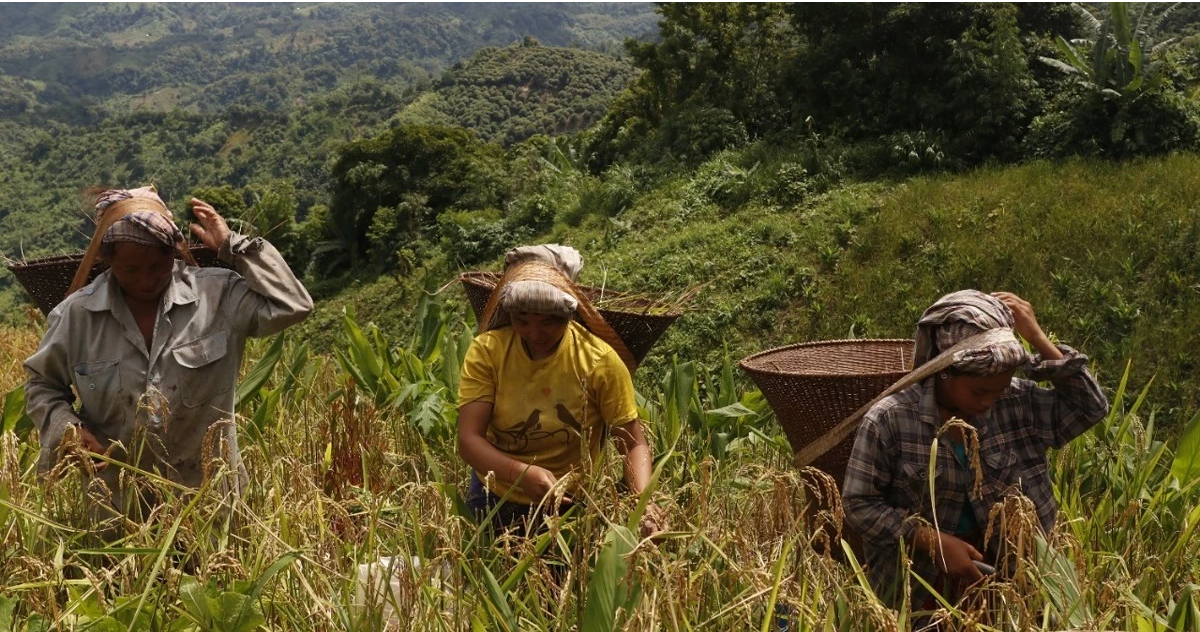Carbon Farming in the Jhum Bhangar Hills
This project intends to help farmers adopt new improved agriculture practices in the Chittagong Hill Track area in Bangladesh. Improved agriculture practices include crop residue management, natural farming, crop rotations and more, which enable cropland soils to improve their carbon sequestration capabilities. The region contains large numbers of small and marginal farmers who are highly susceptible to reductions in yields arising from climate change, and there is a strong need for programs and interventions to help them adapt. In this context, improved agricultural practices provide the opportunity and the power to reverse land degradation and return carbon to the soil, creating carbon removals while improving overall soil health. In this project, farmers adopt a variety of improved agriculture practices. These practices are proven ways to increase soil organic carbon, and enable farmers to improve their productivity: increases in soil organic carbon improve the ability of soils to store moisture and nutrients, and thus also help to increase yields. Recycle Jar research has shown that farmers face various barriers in the adoption of these practices, and this project works towards helping farmers to surmount these barriers, while working with partners to create feasible and sustainable solutions that promote behavioral change at the grassroots level. The financial benefits from carbon credits will provide a direct boost to the livelihoods of these farmers, many of whom are small and marginal farmers.
Bangladesh Map
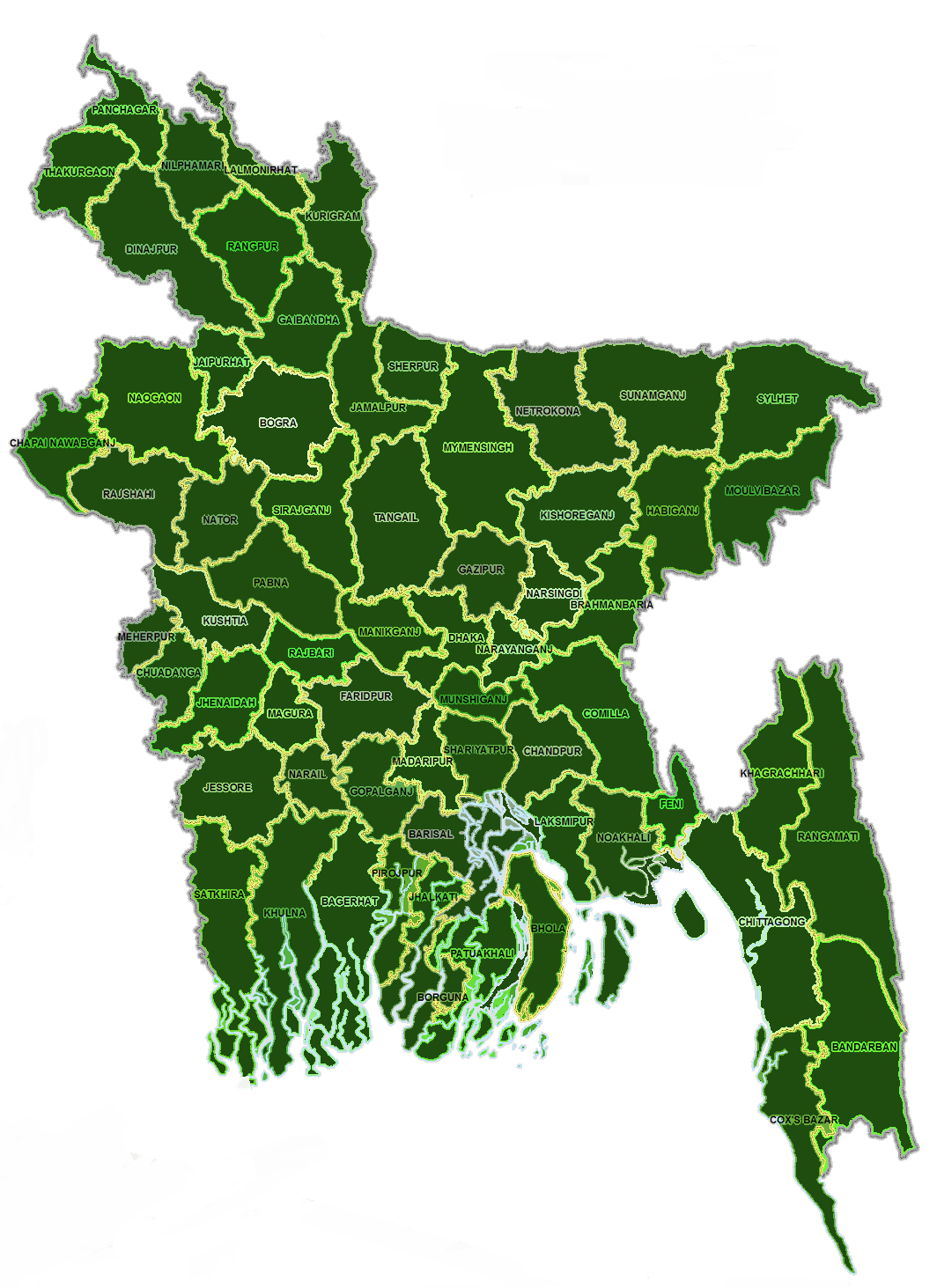
Chittagong hill-side Map
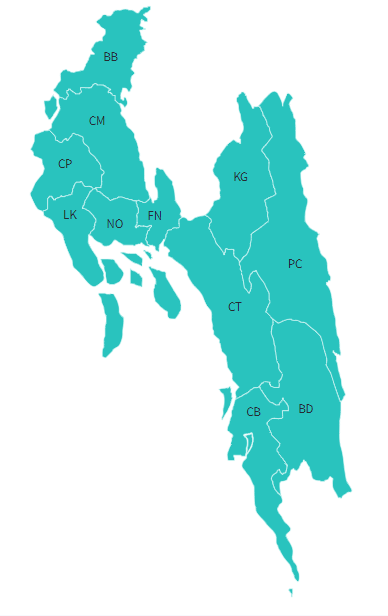
Agriculture is one of the largest industries in the in Bangladesh and Indian subcontinent, directly supporting the livelihoods of over 170 million people. The Jhum Bhangar Hills of Bangladesh serve as the multi crops belt of the country, producing substantial amounts of vegetables and rice. However, over the last century, agriculture has rapidly intensified. Unsustainable farming practices such as stubble burning have entered the mainstream, leading to rapid soil degradation, soil infertility, and increased carbon dioxide emissions.
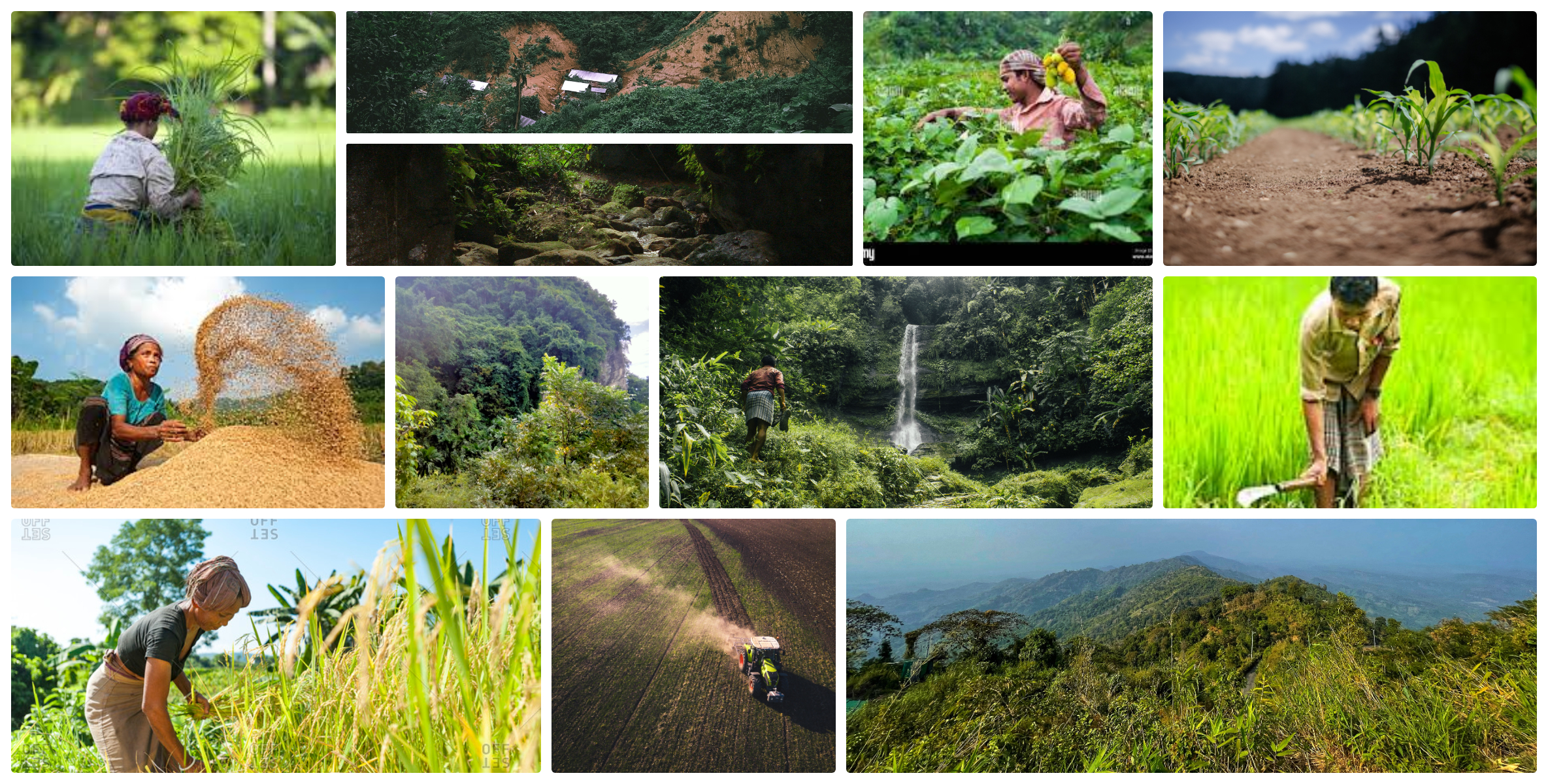
In collaboration with local organizations in Chittagong Hill Track, Recycle Jar promotes agricultural practices that restore soil health and increase the capacity for carbon capture. These improved practices include reduced tillage, crop residue management, improved water management, crop rotations, and more. This, in turn, promotes biodiversity, restoring habitats for flora and fauna and preserving ecosystem services upon which communities depend. VCUs may be issued for the greenhouse gas emission reductions and removals associated with the production of rice, grains, pulses, sugars, fibers, and other crops in this region.
Climate, Community, and Biodiversity
This project has many benefits for the community and biodiversity. Improved agricultural practices promote the regeneration of degraded lands, preventing desertification and improving land productivity. Improved soil health, water quality, and yields ensure that farmers are better equipped to sustain their livelihoods, preventing prospective changes in land use. Thus, crucial habitats for the flora and fauna of the region are also preserved. Increased carbon drawdown translates to internationally certified carbon credits, the revenue from which ensures an additional source of livelihood for the farmer. The supermajority share of the carbon finance generated is routed to the farmer, setting up an opportunity to reinvest in themselves and their community. By prioritizing soil health, a virtuous cycle is created that benefits both the environment and agricultural productivity.
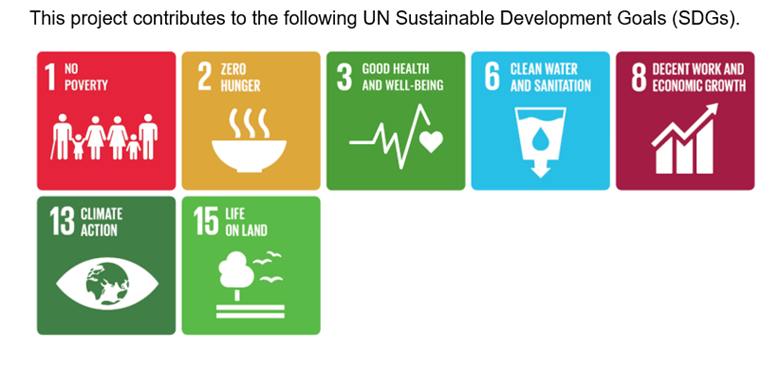
Any question or remarks? Just write us a
message!
